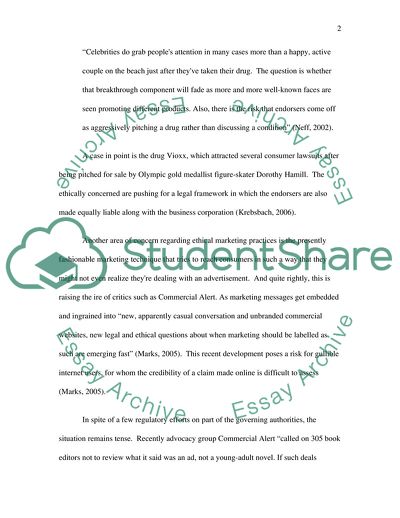Cite this document
(The Concept of Marketing Commodities in a Consumer Market Case Study, n.d.)
The Concept of Marketing Commodities in a Consumer Market Case Study. Retrieved from https://studentshare.org/marketing/1712378-marketing-and-ethicsvis-an-oxymoron-critically-discuss-this-statement-using-industry-examples
The Concept of Marketing Commodities in a Consumer Market Case Study. Retrieved from https://studentshare.org/marketing/1712378-marketing-and-ethicsvis-an-oxymoron-critically-discuss-this-statement-using-industry-examples
(The Concept of Marketing Commodities in a Consumer Market Case Study)
The Concept of Marketing Commodities in a Consumer Market Case Study. https://studentshare.org/marketing/1712378-marketing-and-ethicsvis-an-oxymoron-critically-discuss-this-statement-using-industry-examples.
The Concept of Marketing Commodities in a Consumer Market Case Study. https://studentshare.org/marketing/1712378-marketing-and-ethicsvis-an-oxymoron-critically-discuss-this-statement-using-industry-examples.
“The Concept of Marketing Commodities in a Consumer Market Case Study”. https://studentshare.org/marketing/1712378-marketing-and-ethicsvis-an-oxymoron-critically-discuss-this-statement-using-industry-examples.


